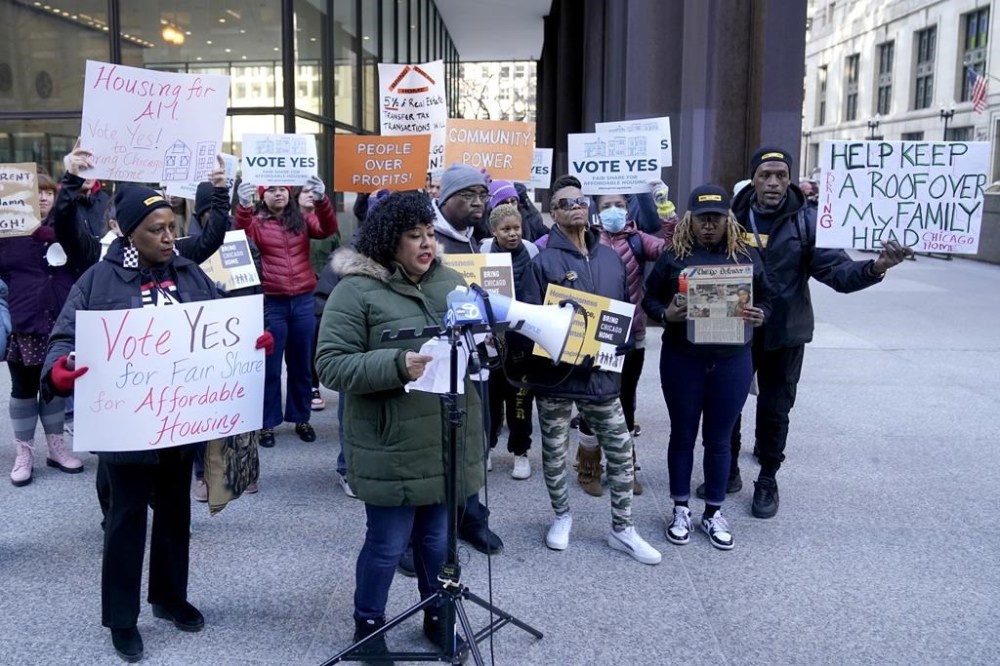Chicago voters reject ‘mansion tax’ to fund homeless services during Illinois primary
Advertisement
Read this article for free:
or
Already have an account? Log in here »
To continue reading, please subscribe:
Monthly Digital Subscription
$1 per week for 24 weeks*
- Enjoy unlimited reading on winnipegfreepress.com
- Read the E-Edition, our digital replica newspaper
- Access News Break, our award-winning app
- Play interactive puzzles
*Billed as $4.00 plus GST every four weeks. After 24 weeks, price increases to the regular rate of $19.00 plus GST every four weeks. Offer available to new and qualified returning subscribers only. Cancel any time.
Monthly Digital Subscription
$4.75/week*
- Enjoy unlimited reading on winnipegfreepress.com
- Read the E-Edition, our digital replica newspaper
- Access News Break, our award-winning app
- Play interactive puzzles
*Billed as $19 plus GST every four weeks. Cancel any time.
To continue reading, please subscribe:
Add Free Press access to your Brandon Sun subscription for only an additional
$1 for the first 4 weeks*
*Your next subscription payment will increase by $1.00 and you will be charged $16.99 plus GST for four weeks. After four weeks, your payment will increase to $23.99 plus GST every four weeks.
Read unlimited articles for free today:
or
Already have an account? Log in here »
Hey there, time traveller!
This article was published 22/03/2024 (570 days ago), so information in it may no longer be current.
CHICAGO (AP) — Chicago voters have rejected a one-time real estate tax on properties over $1 million to pay for services for homeless people.
It’s a loss for first-term Chicago Mayor Brandon Johnson, who championed the so-called “mansion tax.”
The proposal would have incrementally raised the city’s real estate transfer tax on properties valued at more than $1 million. Supporters estimated it would have generated $100 million annually for homeless services, including for mental health care. There are roughly 68,000 homeless people in Chicago on any given night.

The measure also pitched lowering the transfer tax on properties under $1 million, which represents the vast majority of home sales in the nation’s third-largest city.
Opponents, including real estate groups, argued the tax unfairly targets commercial properties and business as downtown is still rebounding from the COVID-19 pandemic. They initially won their lawsuit targeting the measure on constitutional grounds, but it was overturned by an appeals court. The Illinois Supreme Court declined their motion for an appeal.
Voters in cities including Los Angeles and Santa Fe, New Mexico, have approved similar measures.

